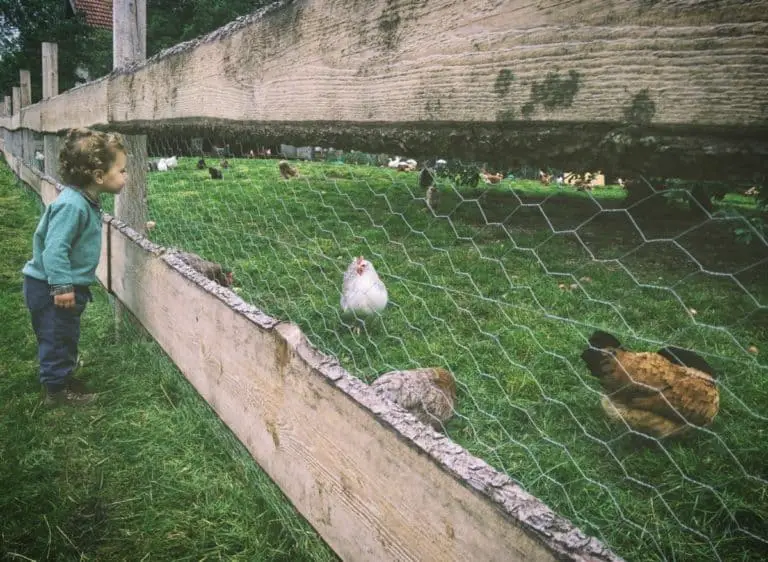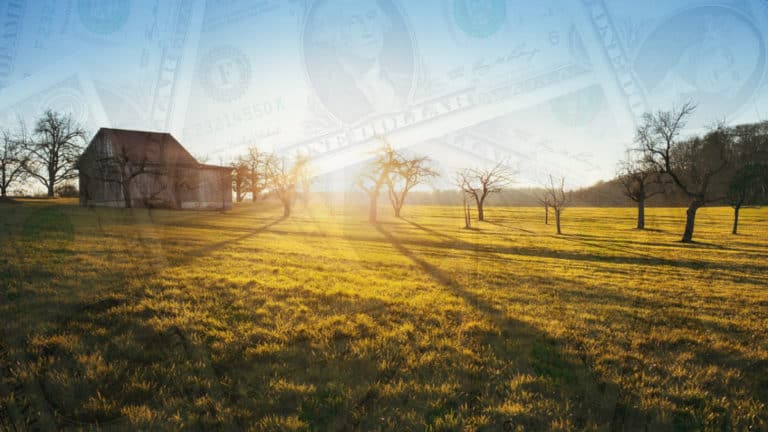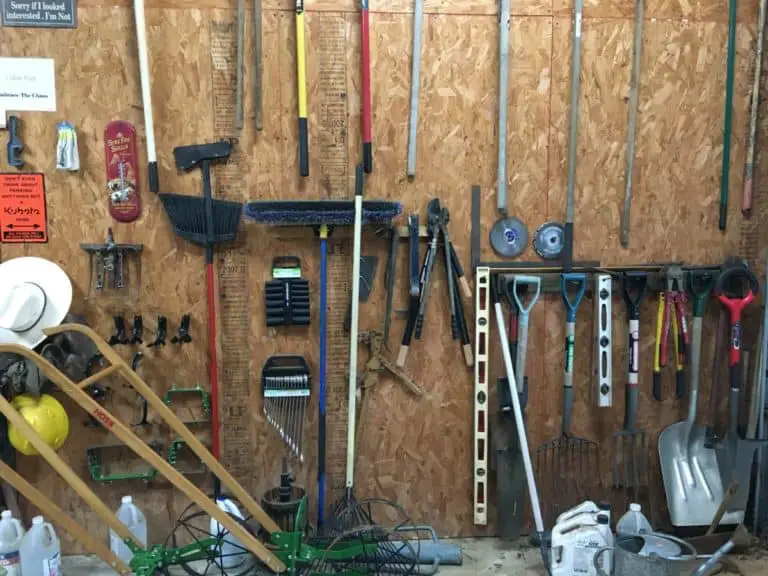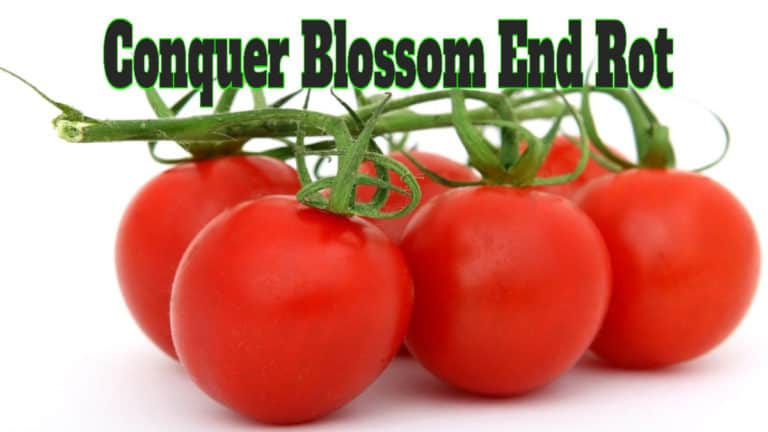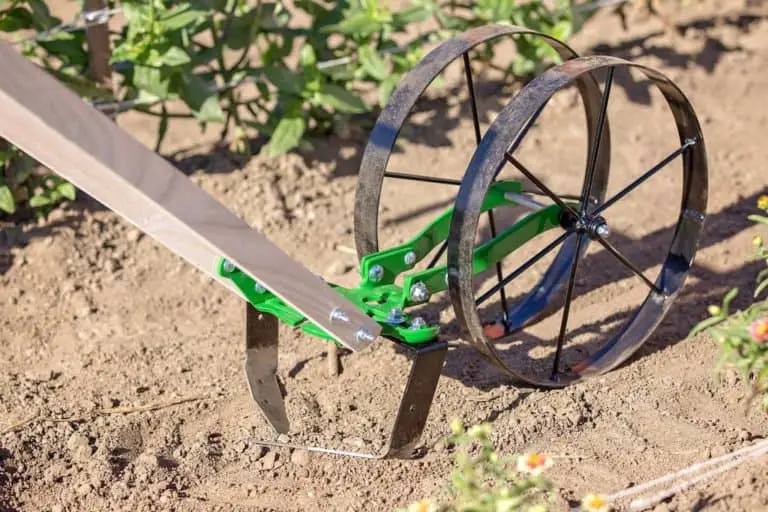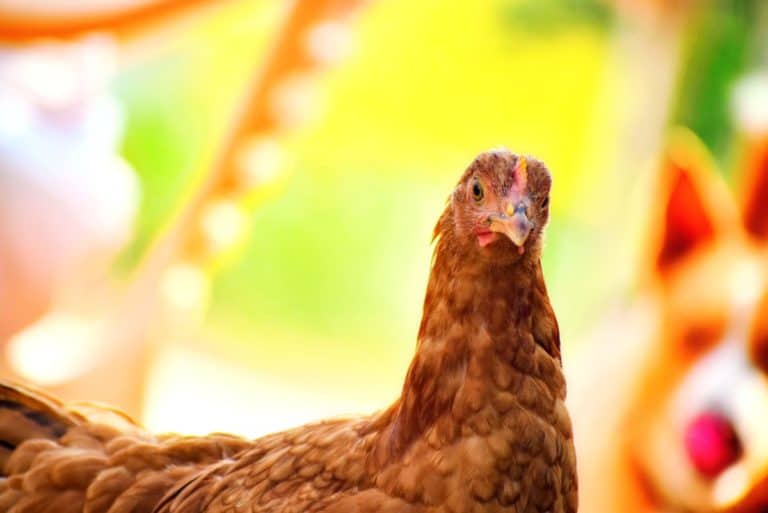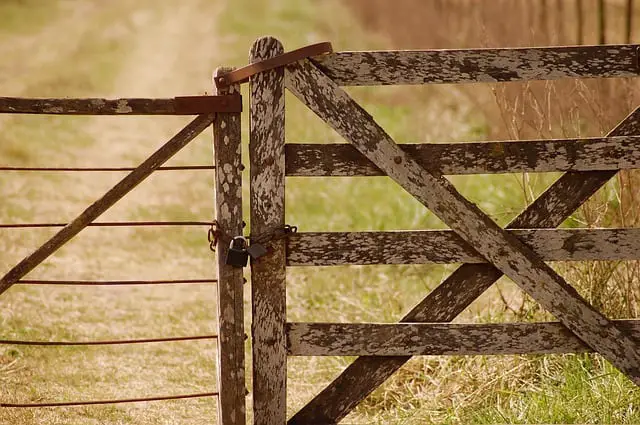

Some think a homestead has to be a large piece of property, but a smart homesteader can enjoy all the benefits of the homestead lifestyle without the expense of a large land purchase. For many, starting a small scale homestead is much more attainable, and desirable.
Small scale homesteading is a self-reliant way of life many find quite fulfilling. An entrepreneurial homesteader can develop diversified income streams while establishing a quiet place to raise children, or to retire. The homesteader can expect to establish new skills, and develop a new appreciation of the land and everything it has to offer.
The homesteading life is more than a piece of property. It is an individual mindset of self-sufficiency coupled with a determination to become closer to the land.
The Fascination With Homesteading
Several Generations ago our ancestors we’re fascinated by a call deep inside that prompted them to go west and carve out a place of their own. They were driven by what we now call the “frontier spirit”. Had they not heeded that call, our great country would never have been settled.
Many people hear that call today. A call to leave the hustle and bustle of the city and carve out a place of their own. Thankfully, we don’t have to take a perilous journey in an ox-drawn wagon to get there. Today, the desire to homestead can still be found in many who wish to unshackle from the bonds of their daily grind and return to the land.
Realizing that dream may seem hard, but it really isn’t. All it takes is a hunger for self-reliance and a desire to get closer to the earth. In fact, many can find the homestead of their dreams with little or no outlay of capital.
Many landowners would be willing to rent their property to someone they were certain would take care of it for them, or help them take care of it. And many landowners, especially those advanced in years, would probably be thrilled to be able to mentor someone.
Being mentored on the farm is a great way to learn the skills necessary if you are ever to have a homestead of your own. You can certainly go and buy a piece of property and begin learning what you need to know as you go, but it’s nice to have some knowledge beforehand if at all possible.
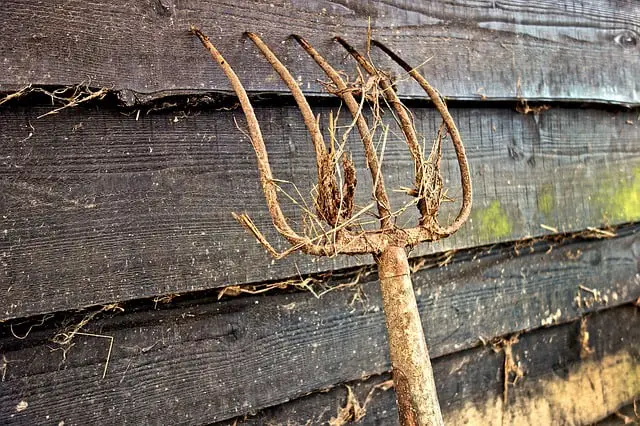
The Internet, YouTube, and other places have extraordinary information available to anyone willing to put in the time to learn. I wish I had the internet to mentor me when I first started. Just about everything I learned, I learned from experience.
Experience is a great teacher, but sometimes she is an expensive teacher. Allowing someone else to teach you what they have learned is much less expensive than learning it on your own from mistakes. Mistakes are usually expensive.
Things You May Need To Learn:
- Gardening
- Animal Husbandry
- Welding
- Carpentry
- Food Preservation
- Predator Control
- Beekeeping
- Fishing
- Hunting
Expect Hard Work
Working on your own property is much more rewarding than working for someone else in an office or in a factory, but many times the work is harder and sometimes even more frustrating. There is never a shortage of things to do. Each day has its own set of chores and unfinished projects. But, the reward and sense of fulfillment are greater than you will receive elsewhere.
Until you have done it, you’ll never understand the satisfaction of standing back looking at a barn or a shed that you built with your own hands and contemplating future generations enjoying your handiwork.
You will break stuff. When you do, you need to know how to fix it. Of course, there are things that will have to be taken to a shop or to a mechanic, but many things can be fixed right on the homestead if you have the skill and expertise to do so. For that reason, I think basic carpentry, mechanical, and welding skills are a must.
I used to have a tractor that was 30 or 40 years old. It seems like every time I took the tractor out to mow or to do any other type of job, something broke on it. Usually, it was something that broke because I had a tendency to stress my equipment to the limit. Many times I broke something metal, that needed to be welded. For that reason, I had to have at least a small knowledge of welding.
When I built my first fence, all my corner posts and gate posts were metal. They were made out of pipe and I had to weld braces and other things to make my fence work. I can look now at some of my very first welding projects and they are still viable after 35 years. That is pretty rewarding, and you will feel the same sense of accomplishment when you do it yourself.
My first shed was a lean-to pole shed that was absolutely horrible-looking. It fulfilled its need which was sheltering livestock, and they didn’t complain, but if they could have, I’m sure they would have. I tore it down a dozen or so years later and I’m glad it’s not still around for anyone to see my shoddy workmanship.
All I’m saying is you will need to build things, and fix things, so learning those skills is a necessary part of homesteading. Again, you have YouTube and the Internet to help you learn those things. Consider yourself fortunate.
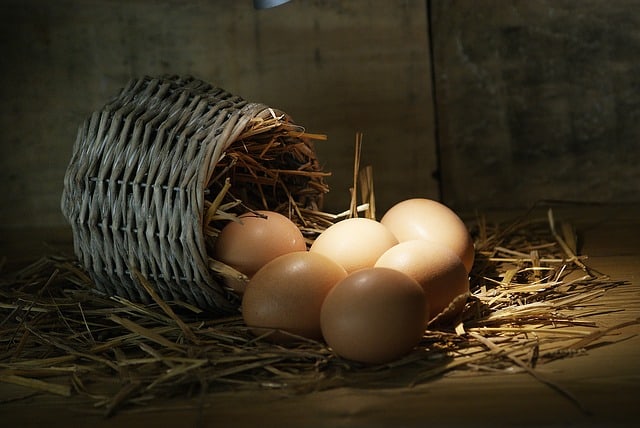
Expect Discovery
Building a homestead will be a time of discovery for you. You will discover skills you’ve never possessed, you will discover an appreciation for nature, you’ll discover what fresh vegetables really taste like, and you will discover accomplishments you never knew you could achieve.
In the paragraphs above I discussed how hard work and skills are needed to build your homestead. And all that is true. You will gain the skills you never dreamed you would have. It will just take time and effort on your part to learn and to practice those skills.
In learning those skills you will also develop a greater level of confidence in yourself. When you look on the pantry shelves and see dozens of jars of fruit and vegetables that you grew, and preserved yourself, your level of confidence in your own abilities will soar, and rightfully so. Just by knowing how to do those two things, you place yourself within a very small percentage of people in this country.
Typically, those are skills that died off a long time ago for the majority of this country. But, only a few generations ago it was the norm. The “Supermarket” is relatively new in our nation’s history. We walk in a well-stocked supermarket and find things from all over the world. But our great-grandparents never knew anything like that. Sure, there was a general store that had a few things on the shelves, but the choices were extremely limited.
Their knowledge of raising and storing food was handed down to them out of necessity, from the generation that preceded them. If they were going to eat, they had to raise the food themselves and find a way to preserve it. When we learn those skills we are paying tribute to past generations, and I’m sure they are smiling down upon us.
You will discover you can trim a goat’s hoof on your own. You will discover you can incubate eggs, raise them into your own laying hens, and receive fresh eggs as your reward. You might find raising small livestock is appealing and fill your freezer with antibiotic-free, growth hormone-free meat.
As your gardening skills progress you’ll discover you can raise high-quality non-GMO vegetables to grace your family’s table. That in itself brings a huge sense of accomplishment along with the knowledge that you are providing the absolute best your family deserves.
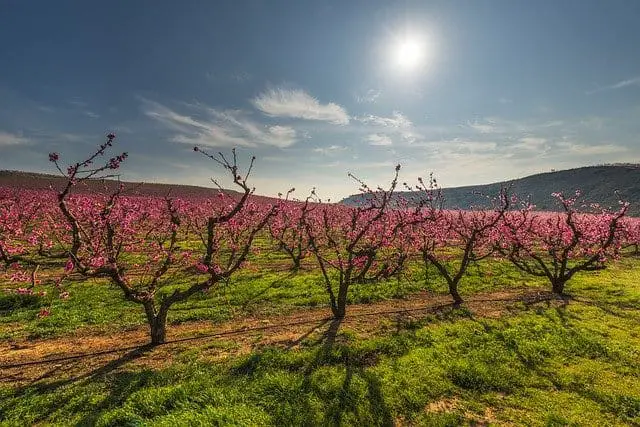
Depending on your homesteading goals, you may also discover the thrill of processing your own honey or making your own butter or cheese. You can develop animal husbandry skills to determine when animals are ready to breed and to choose which stock to sell, and which to keep.
Expect to discover things about yourself you would never have found out had you not begun your homesteading adventure. I was born and raised a city boy. My wife was raised in the country. She wanted to move to a homestead, so we moved without me having the slightest knowledge of what I should expect.
In the city, all I had to do was keep a well-manicured lawn. Now, I had to carve out a place that seemed very remote. Needless to say, I learned what I needed to know, mostly by trial and error. I had a friend that was able to answer many of my questions, but I was mostly on my own. As I said earlier, today’s homesteader has it so much easier. If you don’t know how to do something, just Google it!
Expect Disappointments
I don’t know of anyone in any vocation that doesn’t know disappointment. Life on the homestead is no different. You’ll have livestock that will die. You will have gardens fail. You might have gophers kill your fruit trees and coyotes kill your chickens, but that’s all just a part of the homesteading life.
I’m not trying to paint a dire picture here, but I am trying to keep it real. You will have setbacks. but those setbacks are always something you can learn from.
If gophers are attacking the roots of your fruit trees, learn how to trap them. If you have a fungus on your grapes, find out what fungicide is best and treat them. If your small livestock seems lethargic and sickly, see if they have parasites and if they do, treat them for worms. When a hard rain drowns out and ruins your garden, learn from that. Build some “swales” or terraces to catch and divert the rainwater.
Here’s a video I did about building Swales to prevent garden erosion:
My point is, stuff happens, so learn from it, and correct the problem if possible. So many things you will run into might seem devastating, but it’s usually just a hill to climb, and an opportunity to learn how to keep it from happening again if it’s within your power to do so.
Expect To Become Responsible
Since small scale homesteading can include raising chickens, rabbits, goats, and other small livestock, you’ll find they need you. In fact, they will, for the most part, be completely dependant on you. Chickens, ducks, rabbits, and quail are a few of the small livestock varieties you may want to raise. Each one of these will be very dependant, if not completely dependant on you.
Chickens and ducks can be allowed to “free-range”. If so, they will be able to get some of their nutritional needs from the land, but will still need to be supplemented with feed and water as well as have security provided against predators. I have an article on Predator Control that you might find helpful. You can find it here.
Quail and rabbits are typically caged. If so, they will be completely dependant on you for everything they need. You will need to provide water, food, clean cages or clean bedding material and whatever else they need to keep them alive and healthy.
In fact, before the homesteader decides to buy small livestock, they will need to answer the question “am I willing to be here for them all the time”? I’m not saying you can’t ever leave, but if and when you do leave, you will have to have some automation in place to feed and water them while you’re gone, or a find good neighbor to help. Here’s an article I wrote concerning raising small livestock and how to make it easier through automation.
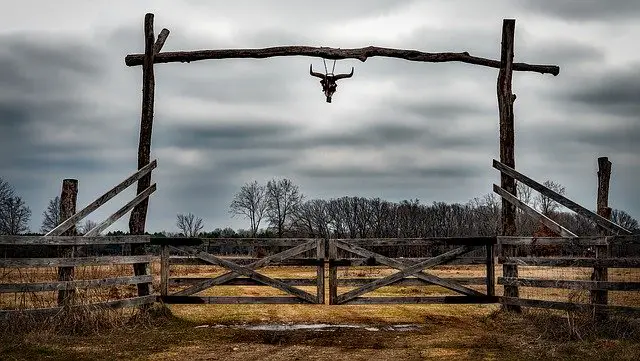
Expect New Income Sources
Homesteading can create diverse income streams. If you raise chickens, you can sell eggs, or you can sell baby chicks that you hatched out yourself. You can make jelly and jam to sell at the farmers market along with the wonderful produce from your garden.
Other income streams such as cut-flower marketing, beekeeping, grape and berry production, fish farming, fruit production, plant propagation, and homemade crafts can supplement your small scale farming operation.
I wrote an extensive article on homestead income streams that I think you’ll find informative. You can find it by clicking here.
Expect To Grow As A Person
I know that sounds like a 1960’s cliche, but it’s true, As a homesteader, you’ll find out many things about yourself that you never knew, and discover capabilities you never thought you’d possess. You’ll develop an affinity for animals that (perhaps) wasn’t there before.
You’ll find you spend less time in front of the TV and more time outside. And, you will love it! Even if you start your homesteading journey as a senior adult (which I am right now) you’ll notice your connection with the land has changed you. You’re never too old to change for the better. You’ll probably find you are less self-absorbed and more concerned with other people and other things.
People Also Ask:
Can You Homestead On One Acre?
Sure. This entire article is about the “small scale” homestead. There are so many things you can do on one acre. You probably won’t have enough room for goats, cows or sheep, but you can certainly raise rabbits, chickens, ducks, and quail. A single acre is plenty of room to raise these varieties of small livestock.
I have 17 acres, but most of what I have done here on my homestead was done on about 2 acres. Now, or in years past, I’ve had around 20 fruit trees, grapes, blackberries, muscadines, chickens, rabbits, gardens, catfish, beehives and more… all on about two acres.
The other 15 acres were set aside for raising larger livestock like cows, pigs, and sheep. So yes, you can absolutely homestead on one acre!
How Do I Become Self-Sufficient?
The term “self-sufficient” denotes that you have everything you need on your homestead and don’t ever need to get anything from an outside source. That’s not practical.
There are a lot of homesteaders that raise their own food and livestock but still have to purchase some commodities from other sources. No one is an island unto themselves. Even the aforementioned pioneer families had to go to town from time to time to buy staples.
But you can become more self-sufficient. By growing your own food, learning how to preserve it, and by raising and butchering your own animals (or taking them to be butchered) you are light-years ahead of most folks who don’t even know where their food comes from. And, you will certainly feel more self-sufficient or “self-reliant”.
The self-sufficient lifestyle is one of making do with less so you can afford to do more with (and on) your land. Therefore, the self-sufficient lifestyle means you rely less on others and rely more on your own skills and resources.
I hope this has prompted you to start planning your homesteading adventure. There are many other articles on this website designed to teach and mentor you on all aspects of homesteading. I hope you’ll check them out.
Also, I have over 800 videos on My YouTube Channel documenting just about everything I’ve done here on my homestead. You can find My Channel HERE.

